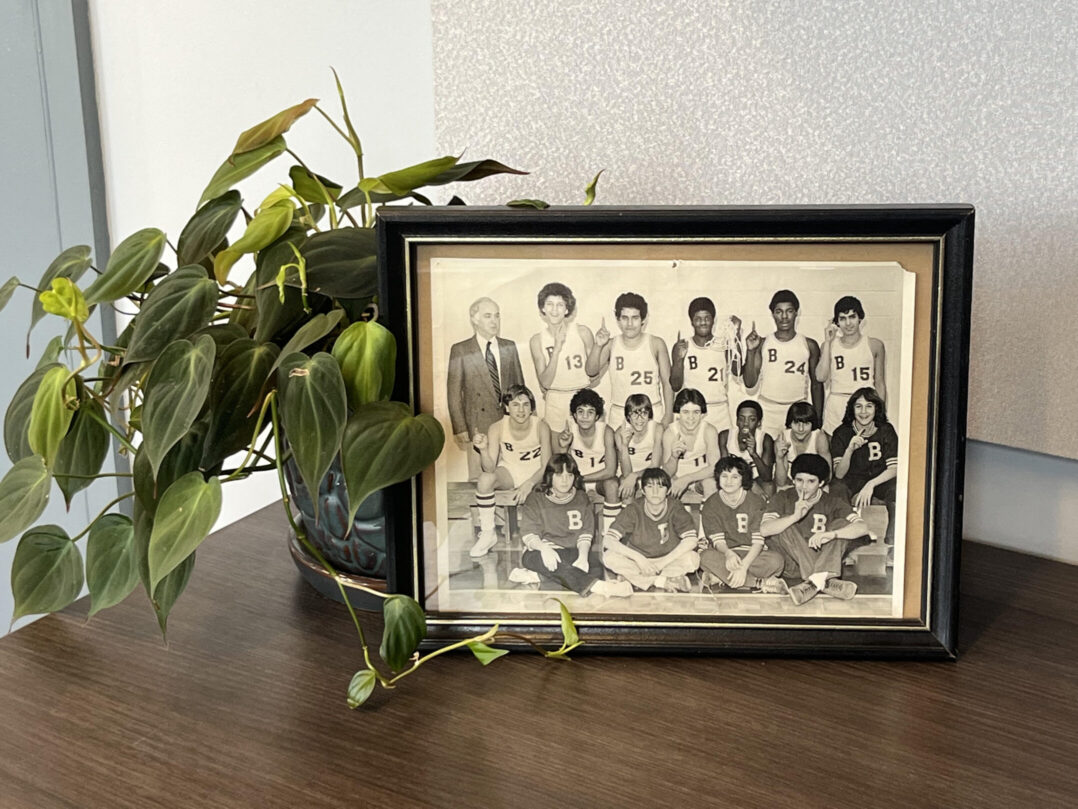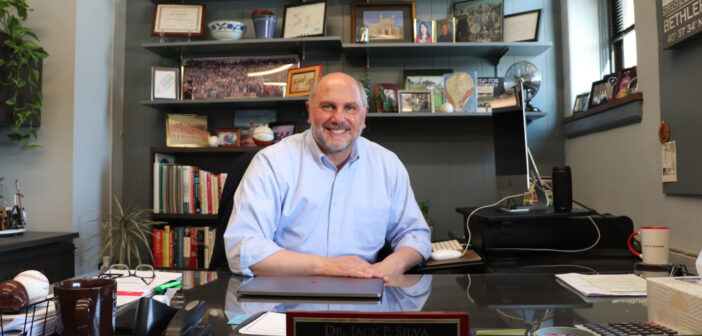The Bethlehem Area School District’s Board of Directors announced in a press release on March 27 its intentions to appoint Jack Silva as the new superintendent of schools, effective in July. The announcement comes after Superintendent Joseph Roy announced his retirement.
On April 24, board members formally accepted Roy’s retirement and approved the appointment of Silva. The vote was unanimous.
Silva has served as the assistant superintendent and chief academic officer of the Bethlehem Area School District since 2010, also the year that Roy became superintendent.
Silva is a lifelong Bethlehem resident, having attended Fountain Hill Elementary School, Broughal Middle School and Liberty High School, with his children also graduating from Bethlehem schools. He previously held various educational positions in the Souderton Area School District from 1989 to 2010. He also received his doctorate degree in educational leadership from Lehigh University.
Q: What have been your primary responsibilities as the assistant superintendent and chief academic officer?
Jack Silva: The chief academic officer part is basically all aspects of curriculum, instruction, assessment and school performance. So basically, if it’s related to an academic program, that’s under my direction. What’s nice about also being the assistant superintendent is I see how best practices of instructional and school improvement also match the organizational design of a school system. You can’t really have one without the other. So, the position is fortunate enough to be able to bring those two worlds together.
Q: Growing up, did you always know you wanted to go into education?
JS: No one grows up thinking they want to be the assistant superintendent or chief academic officer, but I knew I wanted to be a teacher after sixth grade in elementary school. When I was in sixth grade, the country had the bicentennial in 1976, and at Fountain Hill Elementary, we were learning everything through the bicentennial — so we learned about history, obviously, but we also learned about the music of the time, read literature, etc. It was like a very thematic education on steroids. And there I am in sixth grade, loving all this, and I was elected as the student president of the school bicentennial committee. I helped arrange field trips, and we did plays in school. Now, this was the mid-70s, so it was a very progressive education world at the time. But all of that, I loved doing that. So I think at that point I’m like, “I could see myself doing this as a career.” So, I then went to Broughal Middle School and then Liberty High School. Then I went to Penn State and knew I wanted to do education, with an emphasis on history and government.
Q: What was the biggest lesson you learned from the educational leadership doctorate program at Lehigh?
JS: That was a great experience. Growing up as a kid, I always viewed Lehigh as sort of like the Emerald City. It had always been a part of my life, but I just wasn’t a student there. I look back at it and I think I was as lucky to be in that group of doctoral students as I was being a kid in the bicentennial committee in elementary school. It was just good timing for me, but being a lifelong resident of Bethlehem, now I get it.
Q: What makes the Lehigh Valley community different or special? Why did you decide to plant your roots in this community and raise a family here?
JS: Both of my grandparents are from South Bethlehem and, ironically, some of my best friends from kindergarten through 12th grade decided to stay. In the 80s and 90s, America was becoming more diverse, and I felt like the overall trajectory was going in the right direction, and I wanted to stay close and see it happen. When the opportunity came to actually work here as well as live here, I’ve always felt that if you’re an assistant superintendent or a superintendent, you should live in the community you serve.
If you would’ve told me when I was 23 years old that I would now be spending my Friday and Saturday nights on Third Street in South Bethlehem, I’d say, “Are you crazy?” My father was a steel worker and although he passed away when I was young, all the members of my extended family, my uncles and even neighbors, were all very tightly connected to Bethlehem Steel. I think the city is pretty community minded, supportive of the philosophy of the district, which has more of a culturally diverse appreciation for that. And I always say, “If you want to see what America looks like in five to 10 years, come to Bethlehem and look at it right now.”
Q: What has your relationship with Superintendent Roy been like over the years? What have you learned from him that you can take into your new role?
JS: We were both teachers and school administrators in Montgomery County, so we knew each other from education-related things down there. And then we were both doctoral students at Lehigh at the same time. So we had a lot of classes together, and we always joked that we were the two oldest guys in our classes because we were busy being full-time principals. Then in 2010, I was in the Souderton Area School District and the Bethlehem Area School District had fallen on a lot of difficulty, making some bad financial decisions, academically was sort of stalled and organizationally was a bit dispirited. I wasn’t looking to take a superintendent’s position at that time. Then I remember Joe (Roy) calling me, and he said he was thinking about applying for the job as superintendent in Bethlehem. I asked him if he wanted me to write a letter of recommendation, and he said “No, I want you to come be the assistant.” I said “Let me think about that,” and it didn’t take me long to think about it because it was a challenge. No one likes to go into a system that’s not functioning very well, but I also knew I was sort of ready for a new professional challenge.
We are very philosophically the same, as I would say if there’s 100 issues, we think the same on 99 of them. He has been a good friend and a great colleague and mentor all of these years. Three years ago, we were thrown a curve ball where we had to reinvent education as we know it. Watching and supporting him and doing that, I learned a lot. We were able to learn and grow together over time. It’s sort of like when you have two players who have played on the same team for a long time. You know when they are going to cut to the basket, you know when something is going to happen. That is what we’ve been able to do in Bethlehem, and I’ve learned a lot from that.
Q: How did you decide it was the time to take on a new position as superintendent? What made you say yes?
JS: I love my community, and I love public schools, so to be able to have both the experience and the perspective of both at the same time when a community is growing and feeling positive is a wonderful opportunity for me. There’s also some work that we need to finish, as we can’t be a great school district until every kid has an opportunity — we can’t be patting ourselves on the back when a good number of people are struggling to find affordable housing and enough care for their family. Those are things that if we’re gonna continue developing as a community, the community of Bethlehem, we have to overcome those things, and I like that challenge.
Q: What are your primary goals going into your new role? Is there any specific area where you think Bethlehem schools can improve?
JS: It’ll be a lot of continuity, obviously. If it was good to do the last couple of years, it’s still good to do now. I think I have the additional responsibility of bringing the next generation of leaders into the Bethlehem Area School District. The purpose of a leader is not to create followers, it’s to create more leaders. We’re going to keep the vision on literacy and our career pathways. I think I want to intensify the importance and the number of community partnerships involved in our schools and make those partnerships an even better and authentic school experience for the kids. So, bringing them together with our principals, our teachers, developing the programs and creating that level of synergy. It’s also building the future of the community at the same time.
Q: You’ve grown up in Bethlehem and attended Bethlehem schools. Now as the superintendent of these schools, how important is this moment to you?
Silva answers this question by showing me a photo he keeps at his desk of his 1978-1979 Broughal Middle School undefeated city basketball champions. He can remember each person’s name on the team and where they are today.
 JS: This picture is always here for me because this is the Bethlehem School District, and I’m living proof of what can be done here. When we rolled out my announcement that I was going to be superintendent, my phone started buzzing again. All the people who were calling me were all community friends, and there’s no friends like old friends. That is such a large group of people of support and comfort, and that’s a wonderful thing to have. I see these school districts searching nationally for superintendents, and then some well-meaning person comes in from another state, not knowing the community, doesn’t have an idea of the rich history or aspirations of the organization, and then they’re supposed to have goals and make change. How could that work? I never wanted to be superintendent in any other school district other than this one.
JS: This picture is always here for me because this is the Bethlehem School District, and I’m living proof of what can be done here. When we rolled out my announcement that I was going to be superintendent, my phone started buzzing again. All the people who were calling me were all community friends, and there’s no friends like old friends. That is such a large group of people of support and comfort, and that’s a wonderful thing to have. I see these school districts searching nationally for superintendents, and then some well-meaning person comes in from another state, not knowing the community, doesn’t have an idea of the rich history or aspirations of the organization, and then they’re supposed to have goals and make change. How could that work? I never wanted to be superintendent in any other school district other than this one.






Comment policy
Comments posted to The Brown and White website are reviewed by a moderator before being approved. Incendiary speech or harassing language, including comments targeted at individuals, may be deemed unacceptable and not published. Spam and other soliciting will also be declined.
The Brown and White also reserves the right to not publish entirely anonymous comments.